Permits
Obtaining relevant permits for your event ensures compliance with local regulations.
There are several types of permits that may be required for event organisers to obtain, and the entity that issues these permits varies based on the location of the event, and the activities undertaken.
Tips:
Events on Council Property
- To hold an event on council property such as a park or reserve, you must apply for an event permit to book the use of the space and inform the council of the nature of the event. The application may require you to provide important information such as:
- Event dates and timings (including set up and pack down).
- Estimated attendance.
- Type of event and activities.
- Any special requirements (power, water, use of public facilities).
- Parking and access requirements.
- Temporary structures (marquees, tents, staging etc).
- Sound reinforcement and special effects.
- Mobile traders, vendors, and amusement rides.
- Alcohol sales and licensing.
- Security.
- Waste management.
- Fees for parks and reserves bookings will vary dependent on the facilities provided and council input required.
- Council-owned venues and halls may require a permit to be issued in the event booking process.
- Invercargill City Council parks and reserves booking forms and further information can be found here.
Events on Department of Conservation (DOC) Land
- Utilising Department of Conservation (DOC) land for a business activity requires permission in the form of a concession. The processes involved with applying for a concession can be found here.
- Sporting events such as multi-sport events, off-road running races or 4WD club trips require specific concessions – read more here.
- There are different concession types for the various activities that may be undertaken on DOC land. DOC offer a free pre-application meeting for applicants to understand which concession they need to apply for and to navigate the statutory planning documents, as well as any local iwi consultation that is required in the application process.
Filming Permits and Drone / Unmanned Aerial Vehicle (UAV) Usage
- Local councils have specific policies around filming and drone use on land that is owned or administered by them. Permission is required in the form of a permit, which can be applied for via a booking form. Councils can decline permit applications or stipulate specific terms that must be adhered to by the applicant in the permit.
- The circumstances of the filming or drone use may also require the applicant to apply for further permits or permissions – for example, if the filming activities alter the normal usage of a roadway, a Temporary Traffic Management Plan may need to be implemented.
- Invercargill City Council have a filming permit booking form and separate drone use permit booking form which can be found here.
- On DOC land, both filming and commercial drone use require a concession and there are specific fees for different types of productions – read more here.
- Civil Aviation Authority rules do not allow drones to be flown within 4km of any airfield or aerodrome. Learn more about the rules and regulations around both commercial and recreational drone use here.
Mobile Trading Permits & Licences
- Mobile trading is governed by local council bylaws and in most instances, these activities will require a mobile trading permit or licence, which can be obtained from the relevant local council on application.
- The council will determine the fitness of the applicant to hold the permit or licence, who may need to supply further information or documentation as part of the application process.
- The council may issue the permit or licence with specific conditions attached, depending on the type of business and activities undertaken.
Signage and Promotion
- Bylaws regarding signage and promotional assets in public spaces are created and enforced by local councils to ensure public safety is maintained, and that no nuisance is caused by these items. These bylaws govern aspects such as size, content, placement, positioning, proximity to roads etc.
- Invercargill City Council Planning Department’s signage regulation resource can be found here.
- Check with your relevant local council on rules around the placing of posters and other promotional material in public spaces before you put these up.
Fire Permits
- If you are intending to light a fire or have pyrotechnic/fireworks displays at your event, you will most likely need a fire permit.
- Use this tool to determine your requirements: Can I light a fire? | Fire and Emergency New Zealand (checkitsalright.nz)
- The requirement for a permit generally depends on the type of fire season currently declared. One of three types of fire season is in force at any time in an area or zone: Open; Restricted; or Prohibited.
- Local and regional councils have bylaws and rules around smoke and air pollution, no matter the fire season. Even if you have a fire permit, you need to comply.
Useful Links:
- Parks booking fees and forms | Invercargill City Council (icc.govt.nz)
- Running your business or activity on DOC land (doc.govt.nz)
- Drone / Unmanned Aerial Vehicle (UAV) Application Form | Invercargill City Council (icc.govt.nz)
- Drones – rules and regulations (aviation.govt.nz/drones)
- Signage: So-You-Want-To-Erect-a-Sign | Invercargill City Council (icc.govt.nz)
- Can I light a fire? | Fire and Emergency New Zealand (checkitsalright.nz)
Have you considered?
- Which activities at your event may need a permit?
- Which local council or authority do you need to apply to?

